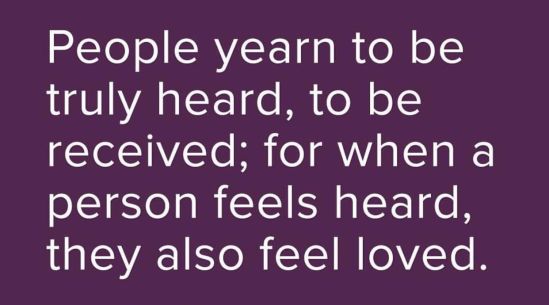
26 Jan Communication Breakdown: Why do we listen to reply and not listen to understand?

Why We Tend to Listen to Reply and not Listen to Understand
As a skill, listening is very critical in communication. It is the best way to pass across information and, more importantly, knowledge between individuals. Even so, studies suggest that over the years, our listening ability has only deteriorated. We no longer listen to understand. Instead, we listen to reply.
Studies show that we spend close to 60 per cent of everyday listening to others, but only retain a quarter of what we hear. Part of the reason for this could be that the world around us has become louder over time. A careful scrutiny and analysis of issues reveal the real suspects in play; a delicate combination of a pair of aspects within the human brain. These aspects include:
- The lag time concept
- The confirmation bias aspect
The lag time concept
Charles Gross, in his study at Princeton University in 2010, discovered what he called lag time in communication. It is the time duration between what you hear and what you understand. Now, according to Gross, lag time is in the range of a few seconds up to a minute. Of course this varies among individuals.
According to Charles Gross, lag time is the reason people listen more to reply than to understand. In fact, this is where real trouble begins. During lag time we shift attention to ourselves. We stop listening to the others. Instead, we listen to ourselves, a perfect recipe for communication breakdown. During the same phase, we tend to figure out a quick response rather than let the message sink in. The whole conversation then ends up into a fierce contest.

What causes lag time in communication?
The exact cause of lag time is still unclear, though psychotherapists and psychologists believe human emotions holds a center stage and are very critical to it. Thoughts, beliefs, values, perceptions and opinions are also other very vital ingredients of an individual’s lag time.
The confirmation bias aspect
In the words of Grand Eklund, “You are only listening to what you want to hear.” I can’t agree with Eklund more. In all most every communication setting, people tend to pick out facts and other figures they deem fit; what affirms their pre-existing perspectives, values and beliefs. In so doing, they listen with more intent to reply than to understand – a real communication disaster. That is in fact how the confirmation bias concept operates.
Healthy conversation should involve listening to every detail of what is spoken. Confirmation bias however contradicts this. It makes it quite the challenge to listen and acquire knowledge.
How does confirmation bias come about?
Psychologists hint that confirmation bias has some level of connection and link with how slow individuals speaks in comparison to how fast they listen. Studies show that the human brain has the ability to process words at an optimum rate of between 600 and 1000 words per minute. When we speak, individuals communicate roughly 175 to 200 words a minute. Clearly, we aren’t utilizing our brain’s full capacity, especially when listening. Because of this underutilization of potential, the human brain tends to drift off into other aspects that would make up for that deficit; the onset of competitive listening.
Competitive listening is best explained using George Miller’s Law. In order to understand what someone else is saying, one has to first assume that the other person’s position is true and then try to find out what is actually true in it. A negation of Miller’s concept bears what is known as competitive listening; hearing something then reacting negatively to it, in part because of a belief that the other person’s position is false. In this spirit, listening grinds to a halt and communication breaks down.

Way forward to effective listening
Many years of exploring listening as an art points me in a common direction; that effectiveness in listening can only be achieved through awareness and concentration. Yes, simply allowing yourself to listen better without coercion.
In order to “listen to understand and not just to reply”, we need to concentrate more voluntarily. This way, we acquire more knowledge and also make our conversations more effective.
